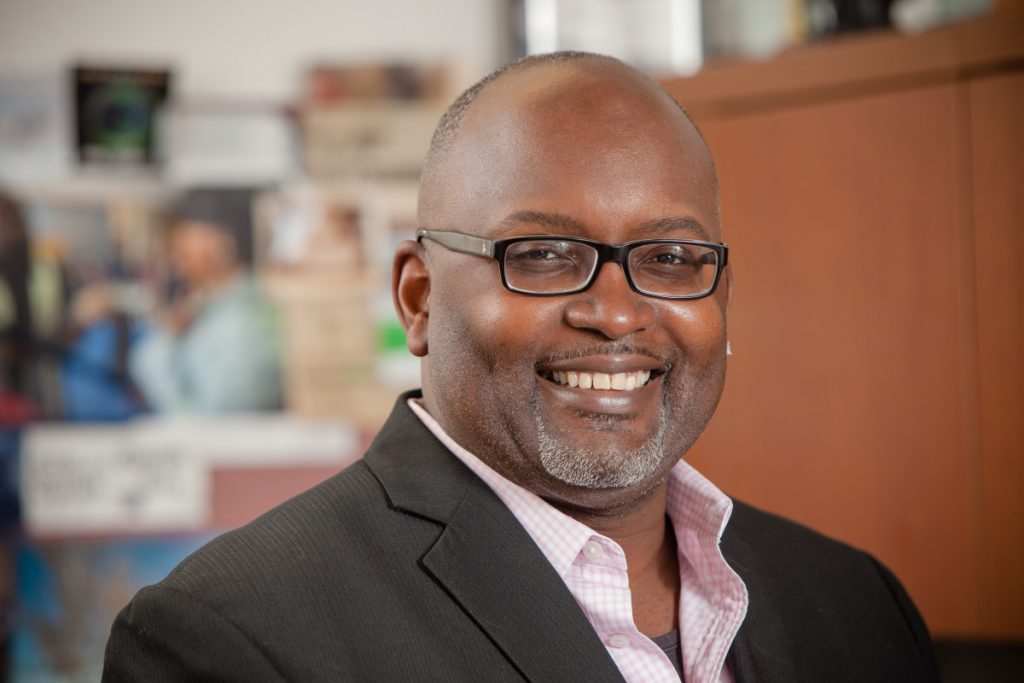SARAH VEST – STAFF WRITER

Historians spend a great deal of time studying the past by looking at primary sources and excavating dig sites for hints of how people used to live and think.
Eric Deggans, a historian on the evolution of Black comedy, does his research through watching TV shows. Deggans will be giving a morning lecture called “From Amos ‘n’ Andy to A Black Lady Sketch Show: How the Comedic Voice of Black America Evolved on TV” at 10:30 a.m. Tuesday, July 27 in the Amphitheater.
Deggans is NPR’s first full-time TV critic, where he is featured on shows like “Morning Edition,” “Here & Now” and “All Things Considered” while also writing content for NPR’s website. In addition to his work in radio, Deggans is a contributor and media analyst for MSNBC and NBC News. He is also the author of Race-Baiter: How the Media Wields Dangerous Words to Divide a Nation.
“In journalism you can be in situations where you define the parameters of what you do, based on what you’re good at and what you’re interested in, and what you think needs to be done,” Deggans said.
He thought that there was a need for a TV critic at NPR, where he had been doing three to four freelance stories a month before being brought in as a full-time employee. According to Deggans, there are only about two or three people who work at NPR full time whose job it is to give their opinions on air.
For Deggans, moving from newspapers to radio was a “big deal,” but one that allowed him to better tell his stories.
lenging to have to teach himself a whole new story structure, but that it was important to create stories that were “radio stories first” — in other words, filled with sounds that could take the listener places.
“I didn’t have to tell you what a scene was like in a show like ‘Succession’ or ‘Watchmen,’ I could just play audio and kind of take you there by listening to the sound,” Deggans said, “then afterwards, kind of tell you what it meant and how that sound sort of fit into a take on the show.”
Deggans wants to talk about the evolution of the voice of Black performers starting with the earliest shows where a Black character starred. Shows like “Amos ‘n’ Andy” and “Beulah” that were “horrifically stereotypical” but still important when it comes to looking about race relations in the United States.
According to Deggans, in the same way that there are periods in history, there are periods in television history. People were depicted in a specific way because of societal constructs, the sophistication of technology and the “stories that we were telling ourselves as a nation” at the time.
“There was a reason why Black people have been more featured in comedy over the years,” Deggans said. “There’s a reason why the first two major shows on television featuring Black people were comedies, and a reason why those comedies featured characters that were pretty demeaning and stereotypical.”
Deggans’ lecture will focus primarily on Black people because Black characters have a much longer history in television than most other ethnicities. That isn’t to say that the same way he is looking at Black characters cannot be applied to other characters of color — like Desi Arnaz, who played Ricky Ricardo in “I Love Lucy.”
“The Black-white dynamic is a really elemental component of America’s fitful relationship with how it treats nonwhite people,” Deggans said. “Black people were kind of Ground Zero. We’re the most extreme case, and the itch that America can’t stop scratching.”
As opposed to the historical precedent, Deggans thinks that currently, there is the “widest variety of people of color in comedy on television.” However, there is a “push-pull” relationship with representation — three steps forward and one step back.
In today’s TV environment, authenticity is highly valued by viewers. This has made many executives realize that the best way to create authentic characters of color is to hire “talented people of color and just give them the agency to tell their own stories,” Deggans said. This opening of the doors, so to speak, is what has changed today’s media.
“You get TV shows that feel real,” Deggans said. “They feel like they’re saying something that’s important and present and visceral, as opposed to a bunch of white people in an office trying to imagine what life is like for Black people.”




